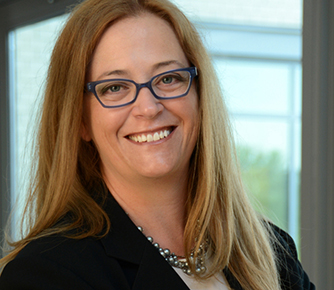In recognition of National Health Center Week, we want to say thank you to the hardworking providers and staff at the nearly 1,400 community health centers across the country. The work they do improves the health outcomes and lives of more than 1 million UnitedHealthcare Community & State members (16.4%) each year. Also known as federally-qualified health centers (FQHCs), community health centers are the first point of entry to the health care system for one in 12 people in America.
Community health centers are independent, non-profit, non-governmental health care organizations that share a mission to provide high-quality, cost-effective health care services to everyone, regardless of insurance status or ability to pay. To be recognized as a federally-qualified health center, organizations must meet federal requirements under section 330 of the Public Health Service Act. They must maintain a patient-centered care model through their local Boards of Directors leadership that represent the community it serves – in fact, federal law requires that a majority of health center board members must be local patients who use the health center’s services. Additionally, health centers must have a sliding fee scale based on an individual’s household income and family size.
Thanks in part to their strong roots in the local community, community health centers are an effective and a trusted source of care for many patients who might otherwise be unable to obtain care quickly and efficiently. FQHCs serve the most vulnerable populations including one in six Medicaid beneficiaries, one in three Americans living in poverty and one in five people living in rural areas. In fact, 44% of community health centers are located in rural areas.
These health centers and their staff serve our Medicaid populations that have some of the largest healthcare needs including - 355,000 veterans, 1.3 million people experiencing homelessness and nearly 3.5 million individuals living in public housing.
From pediatrics to obstetrics/gynecology and preventative disease screenings, community health centers serve our Medicaid members throughout their lifetime. Federally-qualified health centers serve patients of all ages – 9% under age five, with 57% of health center patients between ages 20-64, and 9% over the age of 65. One in nine children in America receive health care through a local health center – including 800,000 children who receive their care from a health center based in their school.
Community health centers are meeting an increased demand for direct care and treatment, while expanding the types of services available to patients including: medical, dental, behavioral health and vision services. The number of behavioral health staff at health centers has tripled over the past 10 years and more than 64,000 patients received medication-assisted treatment for opioid use disorder at a local health center in 2017.
Additionally, FQHCs save precious time and health care costs for both patients and providers. Research estimates that community health centers save the health care system $24 billion each year. Individuals that are able to access primary care through a local center may also be able to thwart unnecessary emergency room visits down the road - making sure small health issues don’t escalate to become major health crises.
In 2010, UnitedHealthcare Community & State established our FQHC Advisory Board – a coalition of thought-leaders and practitioners from more than 20 local health centers across the country focused on connecting our Medicaid members to quality care in their local community. These doctors, public health professionals and community leaders are working side-by-side with us to provide input and guidance to UnitedHealthcare on the policy and practice issues and trends relevant to federally-qualified health centers.
As we work to improve access to care for our Medicaid members, UnitedHealthcare Community & State is grateful for the partnership we have with community health centers and the service they provide for our members and our communities.
Read more from Catherine Anderson
